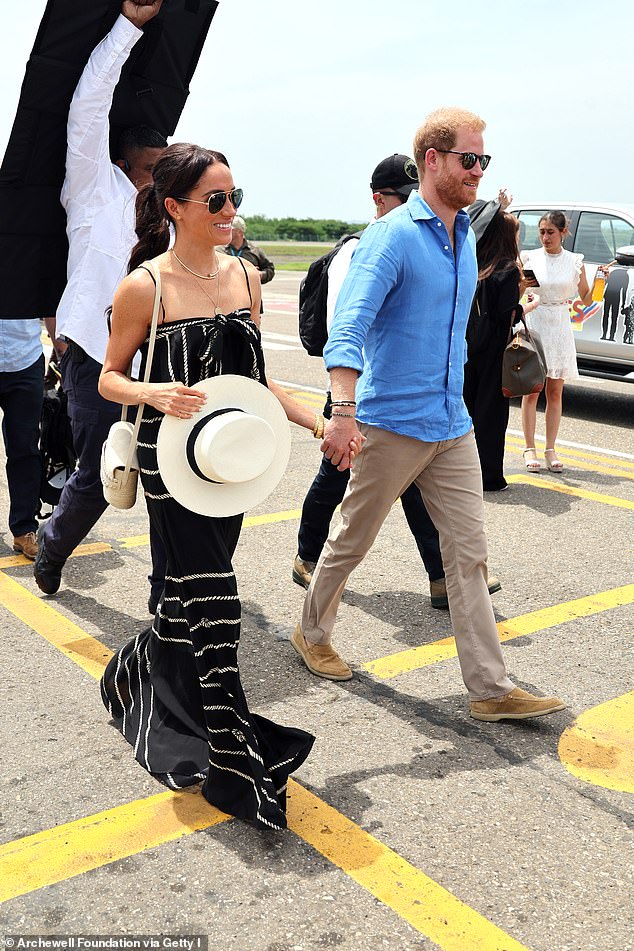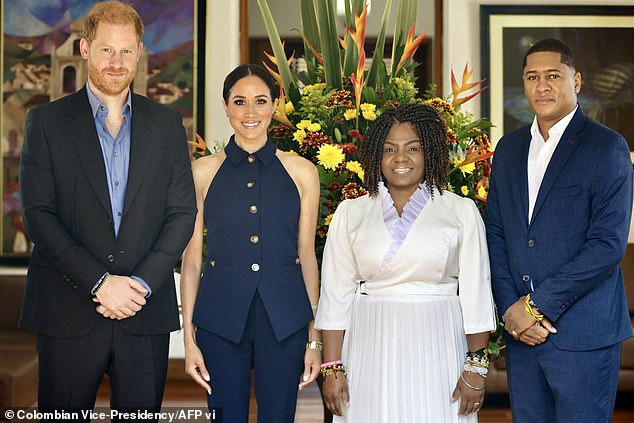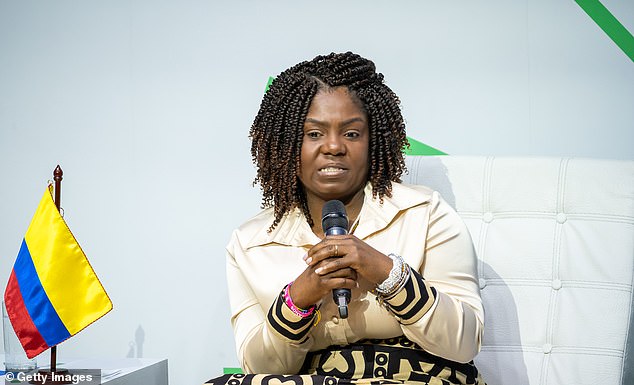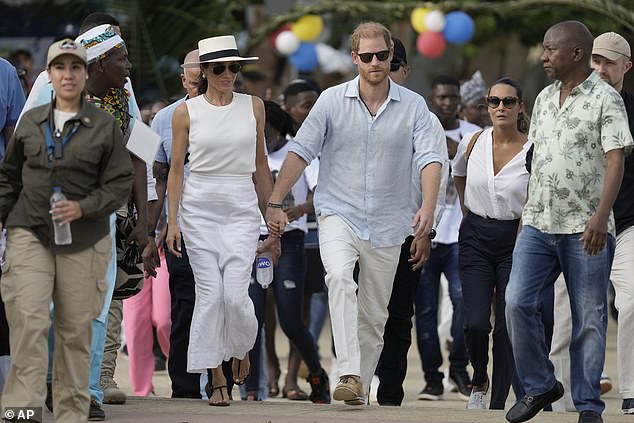Typically, royal outings are a joyous affair involving handshakes, flower delivery and, above all, exchange of pleasantries.
Since the late Queen first decided to wave to crowds rather than from a passing car, they have become part of the social fabric of our nation.
But Harry and Meghan do things differently. As their stay in Colombia demonstrated, they prefer to interact as little as possible with the public.
And it seems that on the rare occasions when the Duke and Duchess of Sussex do meet ordinary people, they try to ensure their exchanges are not overheard.
Their fake royal tour was so tightly controlled that videos of these brief encounters were released to the media without sound.
Prince Harry and Meghan arrive in San Basilio de Palenque, Colombia on Saturday 17 August

Meghan Markle and Prince Harry visit Cartagena, Colombia on August 17
It might have been instructive, for example, to listen to what the couple said to students during a visit to a school in Bogotá on the first day of their tour. Instead, the video only showed their lips moving.
The following day, it was more of the same when Harry played sitting volleyball with the Invictus Games athletes in the capital. How different to an almost identical event three months earlier in Nigeria, when journalists were hanging on the Duke’s every word!
And it would have been nice to hear the couple celebrating African culture during their visit to Palenque de San Basilio, a town founded by former slaves four centuries ago.
The Sussexes’ silent films did not sit well with Meghan’s sermons about self-expression during a forum on “Black Women and Power,” for example, on the final day of the tour.
Never mind. Having stepped down from royal duties four years ago, they may feel that normal rules no longer apply.
The reasons for this lack of transparency are not immediately clear. While the Duke and Duchess tend to air their dirty laundry in public (think of the interview with Oprah Winfrey and Harry’s revealing memoirs), it is not as if they are in the habit of divulging state secrets to their supporters.
However, on this tour the desire to ensure that their engagements received as little external scrutiny as possible was very clear.
To this end, they selected a trusted magazine writer to accompany them and offer consistently flattering accounts of their activities to the rest of the media, which at best only managed to catch fleeting glimpses of the fugitive royals.
The tour was organized by Harry and Meghan’s Archewell Foundation and the Colombian vice president’s team.
Francia Marquez is the first black woman to hold the position and Meghan called her “my friend” during one of the few speeches accompanied by sound.
Information about the trip was posted daily on WhatsApp by the vice president’s office, but several journalists whose coverage caused displeasure were unceremoniously expelled from the group.
Others were reprimanded for daring to ask questions of a headteacher – even though they were freely answered – whose school the Sussexes visited in Cartagena.

Prince Harry and his wife Meghan with Colombian Vice President Francia Marquez and her husband Yernei Pinillo in Bogota on August 15

Colombian Vice President Francia Marquez speaks on stage during a forum on digital responsibility at EAN University during a visit on August 15
It is unclear what the couple, who have since returned home to California, achieved. Critics called it a publicity stunt for both the Sussexes and Marquez.
In a country where 42 percent of the population lives below the poverty line, questions are already being raised about costs.
“The cost of security will be astronomical, a fact that people will not easily forget,” said one opposition politician.
Many locals had never heard of the couple until their arrival. While the Sussexes were introduced to local culture and spoke out about cyberbullying and online mental health, other more pressing issues were ignored.
Colombia is facing economic and social problems with high levels of crime, and the Ministry of Foreign Affairs advises against all but essential travel in much of the country.
Right-wing senator and 2026 presidential candidate Maria Fernanda Cabal said the trip “brought with it absolutely no cultural exchange or anything like that.”
“It is part of the spectacle of a vice president disconnected from the reality of the country,” he added.

